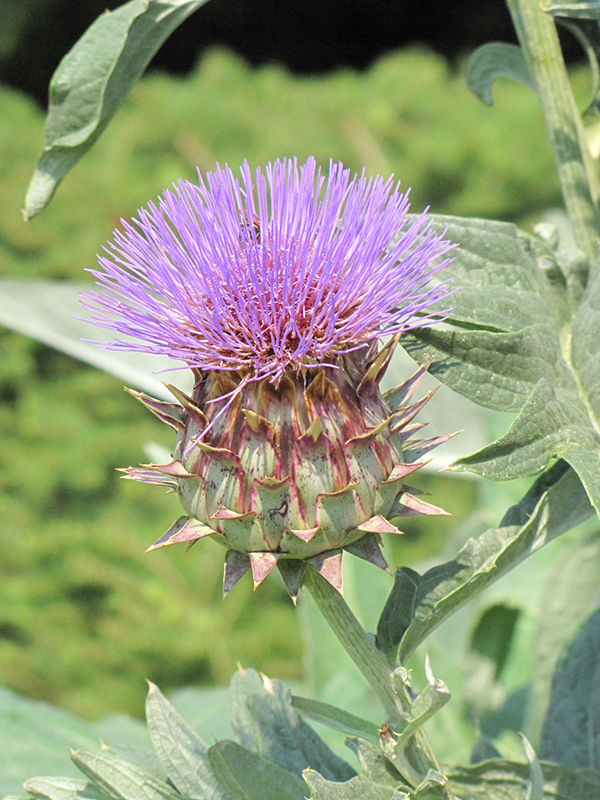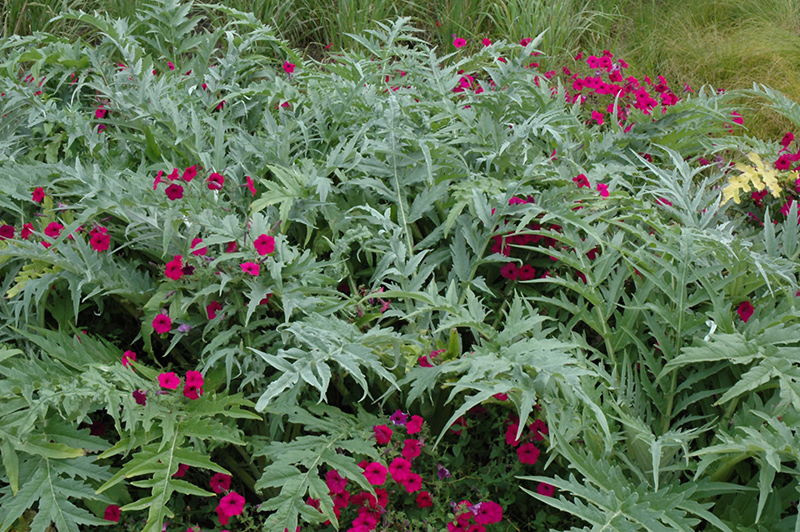>> Home
Porto Spineless Cardoon
Cynara cardunculus 'Porto Spineless'
Height: 6 feet
Spread: 4 feet
Sunlight:
![]()
Hardiness Zone: 7
Other Names: Artichoke Thistle
Description:
Splendid arching gray-green foliage is an architectural delight in the garden; this is a spineless variety with flowers that can be eaten like artichokes when unopened; leaf stalks edible if blanched; invasive in some regions
Ornamental Features
Porto Spineless Cardoon features showy violet pincushion flowers with blue overtones rising above the foliage from late spring to early summer. Its attractive ferny leaves remain grayish green in color throughout the season.
Landscape Attributes
Porto Spineless Cardoon is an herbaceous perennial with an upright spreading habit of growth. Its relatively fine texture sets it apart from other garden plants with less refined foliage.
This is a high maintenance plant that will require regular care and upkeep, and should be cut back in late fall in preparation for winter. It is a good choice for attracting bees and butterflies to your yard. Gardeners should be aware of the following characteristic(s) that may warrant special consideration;
- Self-Seeding
Porto Spineless Cardoon is recommended for the following landscape applications;
- Accent
- Border Edging
- General Garden Use
- Herb Gardens
Planting & Growing
Porto Spineless Cardoon will grow to be about 5 feet tall at maturity, with a spread of 4 feet. It grows at a medium rate, and under ideal conditions can be expected to live for approximately 10 years. As an herbaceous perennial, this plant will usually die back to the crown each winter, and will regrow from the base each spring. Be careful not to disturb the crown in late winter when it may not be readily seen!
This plant should only be grown in full sunlight. It does best in average to evenly moist conditions, but will not tolerate standing water. It is not particular as to soil pH, but grows best in rich soils. It is highly tolerant of urban pollution and will even thrive in inner city environments, and will benefit from being planted in a relatively sheltered location. Consider applying a thick mulch around the root zone in winter to protect it in exposed locations or colder microclimates. This is a selected variety of a species not originally from North America.

